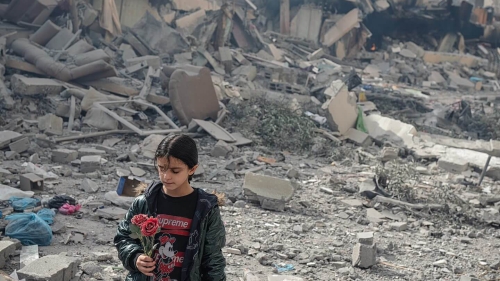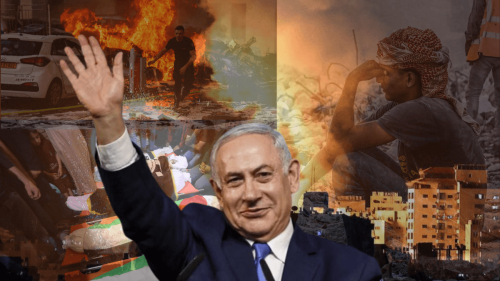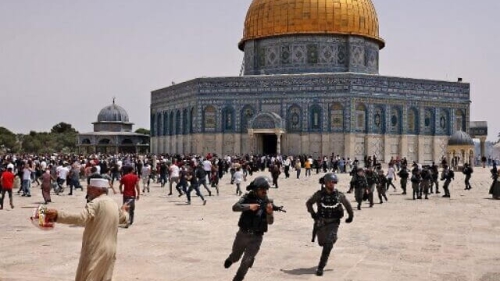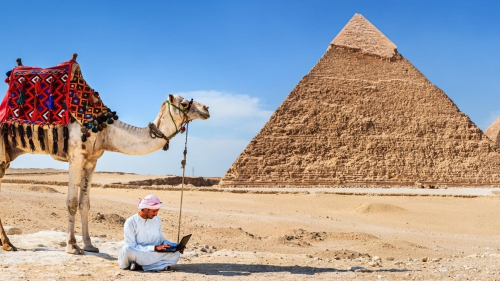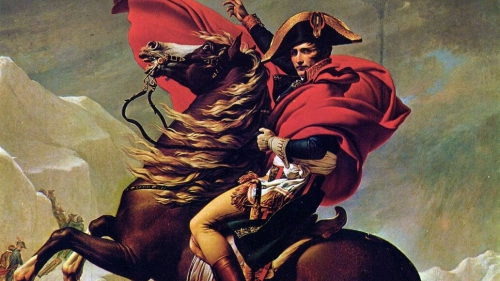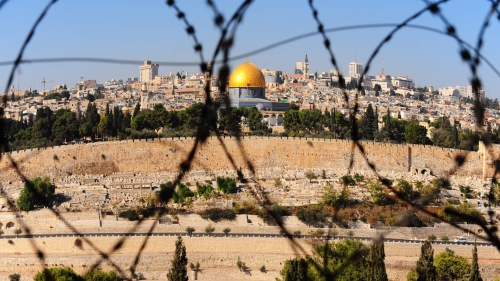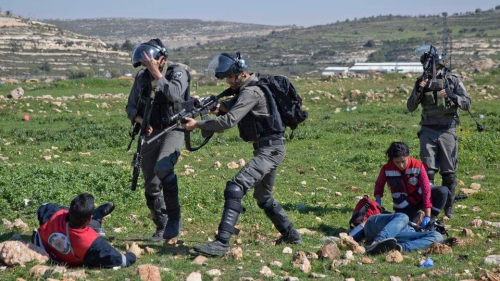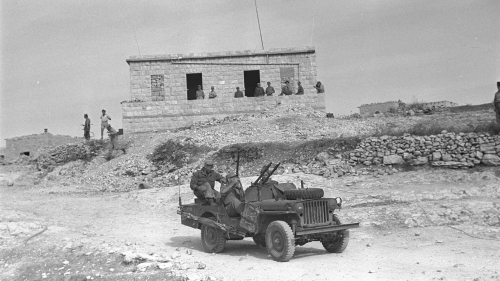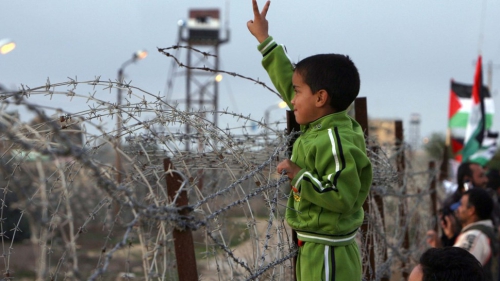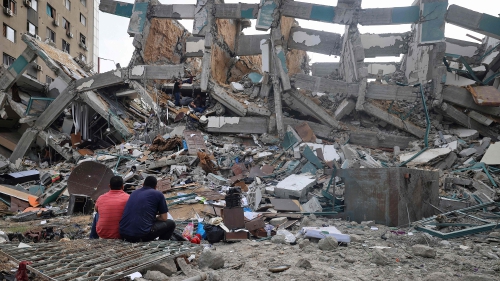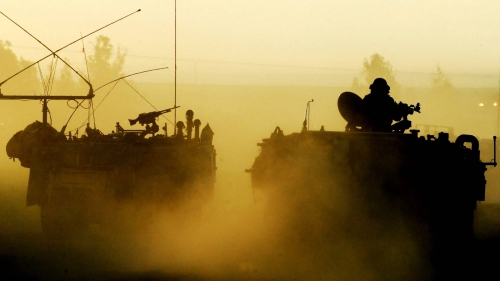The Palestinian Arab Citizens of Israel: Pointing the Way Forward

In 1971, I was in Beirut on a grant from my university to conduct research for my doctoral dissertation on the emergence of Palestinian national consciousness. Since the subjects of my study were the Palestinians in Lebanon's refugee camps, I set about to visit Ein al Hilweh to interview families and document their stories.
Midway through my fieldwork I had a discussion with the novelist Ghassan Kanafani which resulted in a dramatic shift in my approach. Ghassan told me that I was looking in the wrong place. The stories I had collected were important and would be useful, but, he noted, in reaction to the trauma of dislocation and hardship of the camps, their consciousness had been frozen. They were in caught in a time warp, recreating the structures of village life in an effort to preserve what they had lost. The important story, he said, was unfolding in Israel among the Arabs who had stayed behind after 1948. They were the most interesting and politically advanced portion of the Palestinian community. Someday, he insisted, they may very well lead the way.
It was these Palestinians, he said, who were evolving a new consciousness. To make his point he introduced me to the poetry of Mahmoud Darwish, Tawfiiq Zayyed, and Sameh al Qassim. On reading them, I was struck by their love of their land, their resistance to Israeli efforts to strip them of their heritage, and of the boldness of the challenge they presented to the oppression they were forced to endure.
I changed the focus of my dissertation and titled my work "Arabs in the Promised Land: the Emergence of Palestinian National Consciousness among the Arabs in Israel, from 1948 to 1967". I have retained my fascination with this component part of the Palestinian people until today and so I watched and celebrated the remarkable victory of the Joint List-the unified slate of Arab parties-in the recent Israeli elections. Even more so, I have been excited by the early courageous steps they have taken to validate the trust that their voters have placed in them-from their unequivocal rejection of Benjamin Netanyahu's lame effort to apologize for using them as "bait" to incite rightist voters to turn out on election day to the striking call of their leader, Ayman Odeh, to mobilize a peaceful demonstration to Jerusalem to challenge the Israeli government's plan to dispossess and forcibly resettle the 100,000 Arab Bedouin of the Negev.
With 13 seats in the next Knesset, the Joint List is now the third largest party in Israel and given their success they are positioned to grow in strength in coming years. Representing the Arab community that is 20% of Israel's population, they will, in the words that Zayyed once wrote, remain a heavy weight on the heart of the state that seeks to deny them their legitimate right to remain in their land.
The success of the Palestinian Arab citizens of Israel did not come easy. After 1948 when Israelis were celebrating what Ben Gurion called the "double miracle" of a state that was larger and had less Arabs, the 160,000 Arabs who remained in the "Jewish State" faced extreme hardships. For the first decades of Israel's existence, these Arabs were denied the right to form an independent party. When some brave souls founded al Ard (the land) party, they were arrested and expelled from the country. Arab laborers were denied the right to join even the Histadrut (the Israeli labor union) on the grounds that it was only for Jewish workers. Placed under what were called "Emergency Defense Laws", Arab-owned lands were confiscated and the Arabs citizens were subject to harsh military justice which included: curfews, collective punishment, and arbitrary arrest and summary expulsion. Over the years, Israeli leaders referred to them as "aliens", "strangers in our land" (a biblical term), "a cancer in our midst", and "a demographic time bomb". They were, in reality, under occupation in their own country.
Arab cities like Nazareth lost control of their adjacent lands-their source of livelihood-that were then used to build Jewish-only communities. Because of the discriminatory regulations imposed by the Jewish National Fund, Arabs could not buy or rent properties in any of these new settlements.
As the Arabs matured and organized, they were punished for their efforts. Because the only party that would accept them as full members was the Communist Party, they joined it, transforming it into a substitute nationalist party. When in the 1970's, the Arabs of Nazareth elected Tawfiq Zayyed as their mayor, the Israeli government punished them for their insolence by cutting off state funding for the Nazareth Municipality. In response to this budget loss, Zayyed organized international youth camps, welcoming thousands of volunteers from all over the world to come to the city to help with construction projects, clean-up campaigns, and to provide other needed services.
A critical turning point for these Palestinians came 40 years ago when Israel announced plans to "Judaize the Galilee" by confiscating more land to build Jewish-only communities in order to change the demographics of this heavily Arab region of the country. In reaction, the Arabs called for a national strike and mass mobilization on May 30, 1976. The Israelis reacted brutally, killing six and injuring 100. This first "Day of the Land" both inspired and empowered the Arab community and, as a result, March 30th is commemorated each year as "Land Day" by Palestinians, world-wide.
Against the backdrop of this history and these challenges, the recent electoral success of the Palestinian Arab citizens of Israel can be seen as all the more significant. While the Joint List includes a number of disparate groups, ranging from Communist to Islamic parties, they are unified in their resolve to remain on their land and steadfast in their struggle to fight for their rights. What is equally interesting is that despite the different positions of their parties, our polling shows a remarkable consensus in the political views of the Arab community. They are more forward looking on most issues than either Israeli Jews or Palestinians from the occupied territories. They support an end to the Israeli occupation and the establishment of a two-state solution and they support the rights of the refugees-whom they see as their dispossessed kin. They strongly support both the Arab Peace Initiative and the parameters of the Clinton peace proposal. And they insist that their future is in their native land, demanding equal rights on all levels equal funding for education and other public services, and an end to the 50+ laws that discriminate against them in favor of the Jewish citizens of the state.
It is because of this history that I shudder when I hear liberals argue that Israel must end the occupation in order to remain "Jewish and democratic". The reasons to end the occupation are because it is immoral and illegal and because it has caused enormous hardship to millions of innocent Palestinians. And more than that, the notion that a state can favor one group and still be democratic is impossible.
Netanyahu's promise to be the Prime Minister of all the citizens of the state is lame precisely because this is what Israel has never been. His effort to pass a "Jewish Nation State" law in the last Knesset and his promise to resurface this law in the next government makes clear his intention, since this law only serves to codify Jewish supremacy and the subordinate status of Israel's Arabs.
That the Palestinian Arab citizens of Israel have fought for their rights for 67 years and continue to advance in their struggle gives me hope. As we approach this years' "Land Day", keep your eyes on this remarkable community. They do, indeed, point the way forward.
*****
Dr. James J. Zogby is The President of Arab American Institutes.






